Quotes & Sayings About Conduct Disorder
Enjoy reading and share 8 famous quotes about Conduct Disorder with everyone.
Top Conduct Disorder Quotes
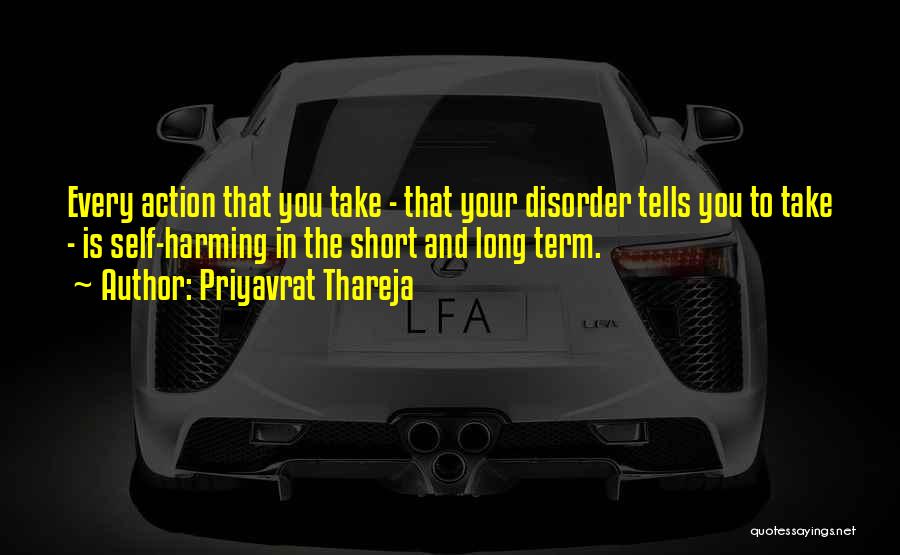
Every action that you take - that your disorder tells you to take - is self-harming in the short and long term. — Priyavrat Thareja
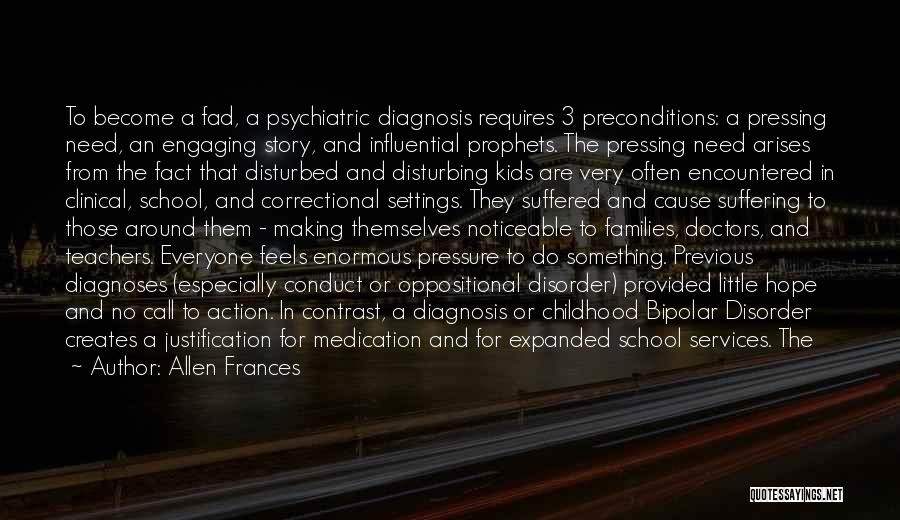
To become a fad, a psychiatric diagnosis requires 3 preconditions: a pressing need, an engaging story, and influential prophets. The pressing need arises from the fact that disturbed and disturbing kids are very often encountered in clinical, school, and correctional settings. They suffered and cause suffering to those around them - making themselves noticeable to families, doctors, and teachers. Everyone feels enormous pressure to do something. Previous diagnoses (especially conduct or oppositional disorder) provided little hope and no call to action. In contrast, a diagnosis or childhood Bipolar Disorder creates a justification for medication and for expanded school services. The medications have broad and nonspecific effects that are often helpful in reducing anger, even if the diagnosis is inaccurate. — Allen Frances
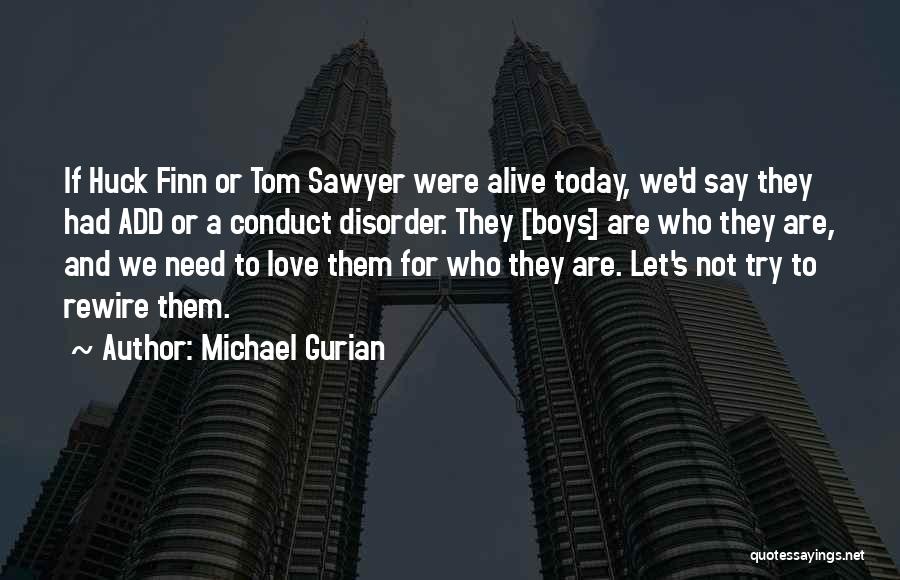
If Huck Finn or Tom Sawyer were alive today, we'd say they had ADD or a conduct disorder. They [boys] are who they are, and we need to love them for who they are. Let's not try to rewire them. — Michael Gurian
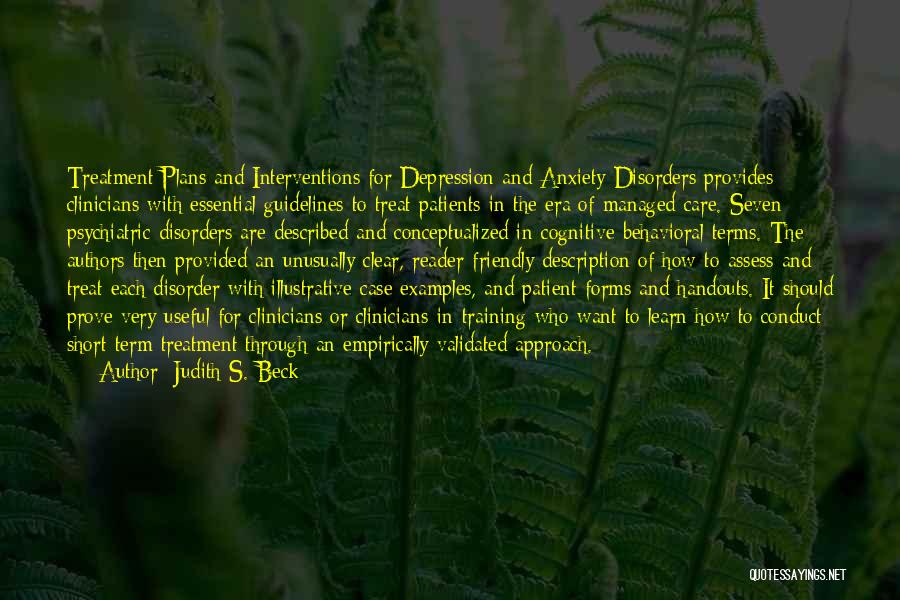
Treatment Plans and Interventions for Depression and Anxiety Disorders provides clinicians with essential guidelines to treat patients in the era of managed care. Seven psychiatric disorders are described and conceptualized in cognitive-behavioral terms. The authors then provided an unusually clear, reader-friendly description of how to assess and treat each disorder with illustrative case examples, and patient forms and handouts. It should prove very useful for clinicians or clinicians-in-training who want to learn how to conduct short-term treatment through an empirically validated approach. — Judith S. Beck

Psychiatric diagnoses are getting closer and closer to the boundary of normal," said Allen Frances. "That boundary is very populous. The most crowded boundary is the boundary with normal."
"Why?" I asked.
"There's a societal push for conformity in all ways," he said. "There's less tolerance of difference. And so maybe for some people having a label is better. It can confer a sense of hope and direction. 'Previously I was laughed at, I was picked on, no one liked me, but now I can talk to fellow bipolar sufferers on the Internet and no longer feel alone.'" He paused. "In the old days some of them may have been given a more stigmatizing label like conduct disorder or personality disorder or oppositional defiant disorder. Childhood bipolar takes the edge of guilt away from parents that maybe they created an oppositional child. — Jon Ronson
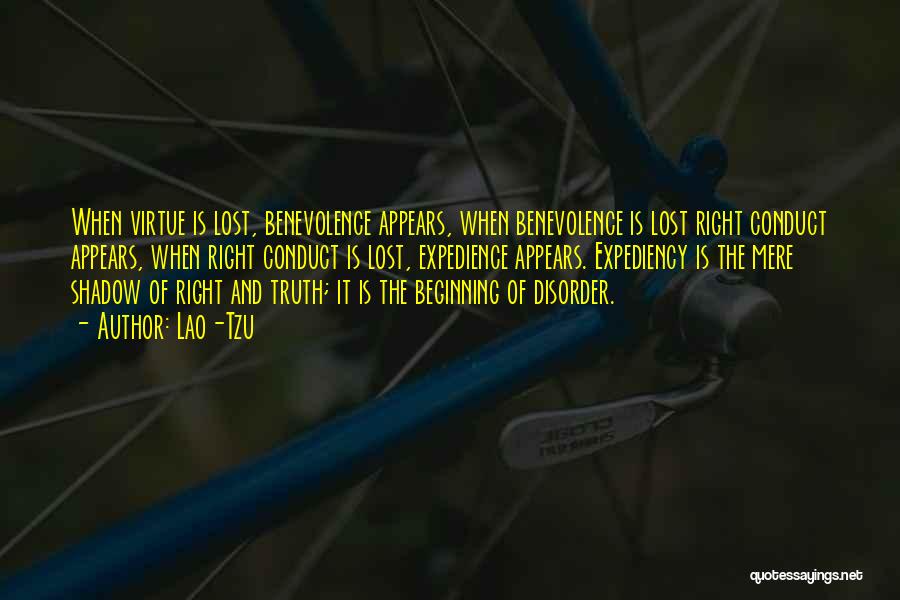
When virtue is lost, benevolence appears, when benevolence is lost right conduct appears, when right conduct is lost, expedience appears. Expediency is the mere shadow of right and truth; it is the beginning of disorder. — Lao-Tzu
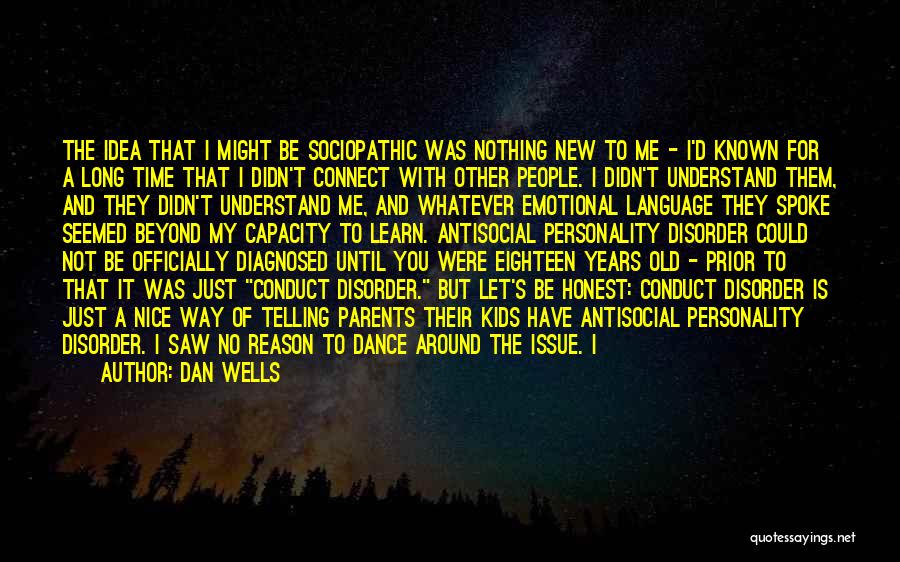
The idea that I might be sociopathic was nothing new to me - I'd known for a long time that I didn't connect with other people. I didn't understand them, and they didn't understand me, and whatever emotional language they spoke seemed beyond my capacity to learn. Antisocial personality disorder could not be officially diagnosed until you were eighteen years old - prior to that it was just "conduct disorder." But let's be honest: conduct disorder is just a nice way of telling parents their kids have antisocial personality disorder. I saw no reason to dance around the issue. I was a sociopath, and it was better to deal with it now. — Dan Wells
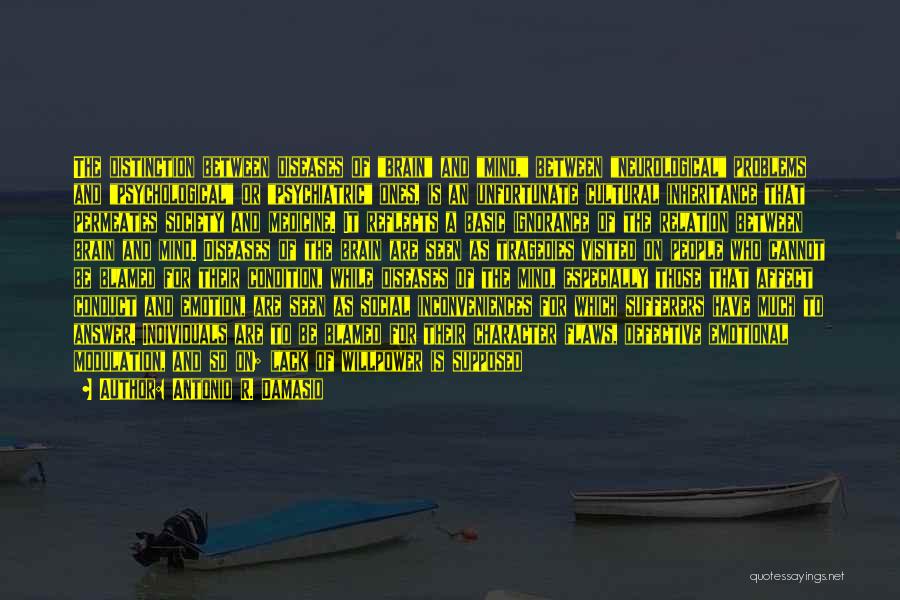
The distinction between diseases of "brain" and "mind," between "neurological" problems and "psychological" or "psychiatric" ones, is an unfortunate cultural inheritance that permeates society and medicine. It reflects a basic ignorance of the relation between brain and mind. Diseases of the brain are seen as tragedies visited on people who cannot be blamed for their condition, while diseases of the mind, especially those that affect conduct and emotion, are seen as social inconveniences for which sufferers have much to answer. Individuals are to be blamed for their character flaws, defective emotional modulation, and so on; lack of willpower is supposed to be the primary problem. — Antonio R. Damasio





